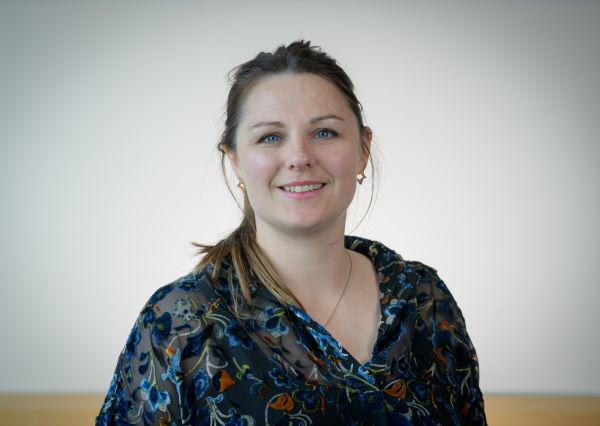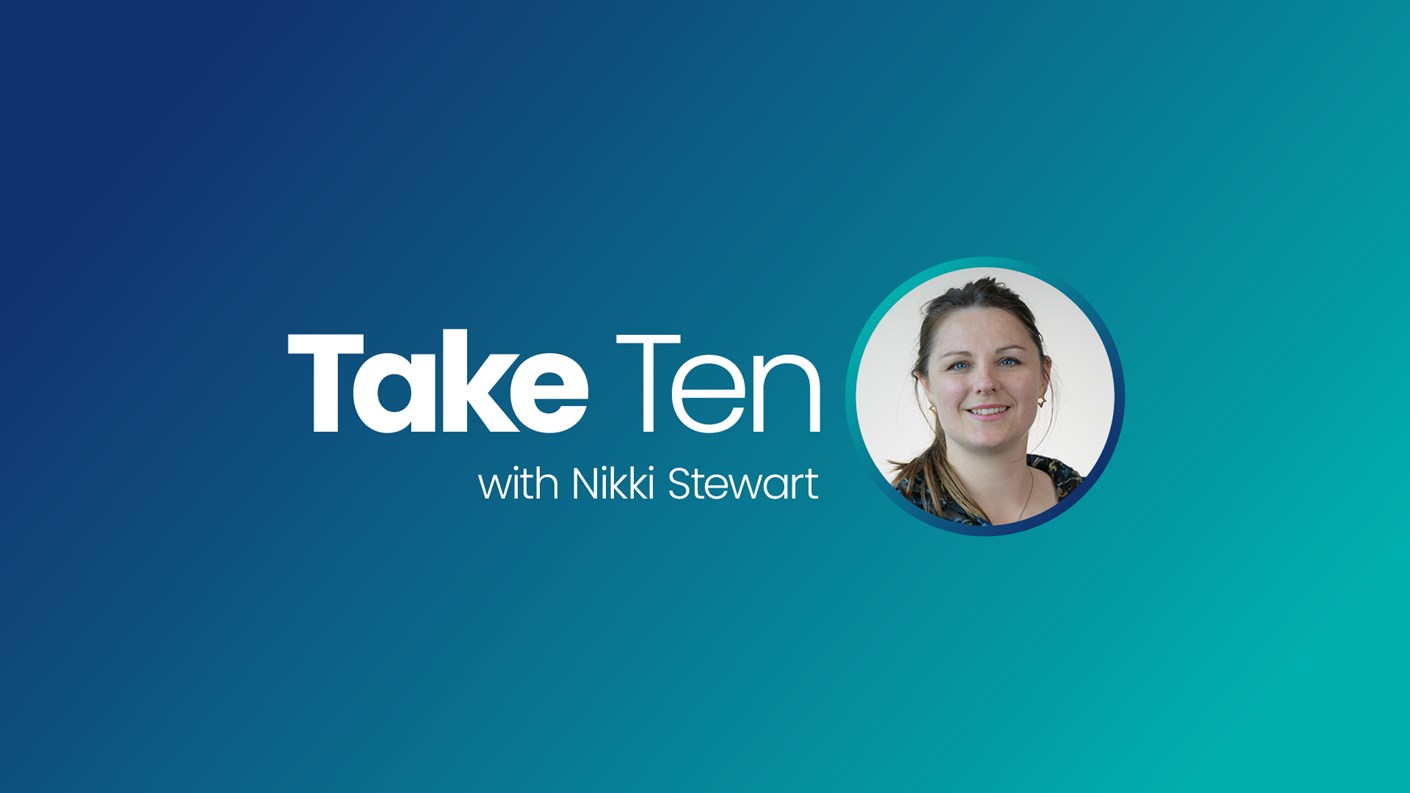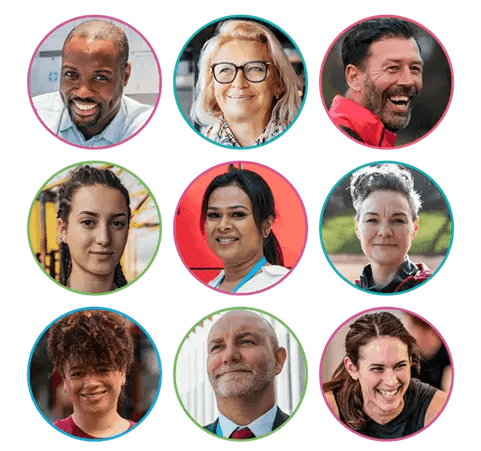Take ten with Nikki Stewart – committee spotlight
We ask Nikki Stewart, member of the Scotland Workforce Professional Development Board, ten questions about her work, the board and its importance
We are sharing a series of features that shed light on what the boards, committees and panels that govern CIMSPA do by talking directly to the valued members that steer them.
In each article of the series, we will talk to a member of one of the boards, committees and panels, asking them ten questions to find out more about each group’s essential work. In doing so, the members themselves will provide a true insight into the focus and importance of each division of CIMSPA’s governance.
We will also hear about the member’s own background, role and thoughts about the sport and physical activity sector, showcasing the fantastic individuals that come together to support CIMSPA.
This month, the spotlight is on Nikki Stewart, who has been part of the Scotland Workforce Professional Development Board (WPDB) since its creation in 2019.
 What is your current job?
What is your current job?
I’ve been a partnership manager at sportscotland for nearly three years, working within the coaching and volunteering team. My role is focused on coaching qualifications, so I’ve been working with governing bodies as well as the Scottish Qualifications Authority to develop sports coaching qualifications that can be used by governing bodies, in schools and colleges and by private training providers.
We’ve got a different coaching qualification system in Scotland compared to the rest of the UK. It centres on the Scottish Coaching Certificate, which is mapped to the professional standards managed by CIMSPA. This helps to encourage collaboration across governing bodies and the connection to CIMSPA professional standards allows transportability across the UK.
What is your connection to the sport and physical activity sector?
I grew up sailing, and as I got older, I started travelling around and going to competitions. I then progressed through the system – while competing, I also started instructing and getting into coaching as well.
I didn’t study sport – I went down the arts route. I was heavily involved in student sport at university, though, and was the women’s captain for sailing and then Chair of Scottish University Sailing Association (now Scottish Student Sailing). I did all the instructing qualifications through the governing body and progress to Dinghy Trainer, delivering coach education.
After leaving university, I became a volunteer for Royal Yachting Association (RYA) Scotland and sat on their development committee and council. I also took on volunteering roles at my home sailing club.
Just before the 2014 Commonwealth Games, I was juggling several jobs. I was working freelance in theatre, film and TV making costumes and props. I was also doing a bit of coaching, delivering some coach education for RYA Scotland and working on a yacht providing corporate hospitality.
Through the Commonwealth Games, some funding was made available in Scotland for non-Commonwealth Games sports to do something to celebrate the Games. RYA Scotland put in a bid and decided to organise a flotilla to sail up the River Clyde.
I got the job as a project officer for that on a six-month contract. Shortly after the contract ended, the RYA advertised the role of coach education development manager and that was my first full-time role in the sector.
Why did you become a board member?
I became a member of the Scotland Workforce Professional Development Board when I was working in my previous role at the RYA Scotland. I was the chair of the Qualification Design Team for the Scottish Coaching Certificate and had been asked to join to help ensure that this was area of work was connected to the wider sector.
Moving into my current role, it was important to have representation from sportscotland on the SWPDB. It felt natural for me to continue being on the board – and I was keen to do it, too.
On a more personal level, I like having that connection to the broader sport and physical activity sector. My background is very governing body-focused, so it’s really nice to be among representatives from leisure trusts and universities. It’s great to network and gain a greater understanding of what else is happening in the sector within Scotland. There are all sorts of things that I end up getting involved with that I wasn’t necessarily expecting.
How would you describe the work of the Scotland WPDB?
If I was going to use one word, it would be sharing. We share experiences and practices across Scotland and build connections between organisations so that we’re not working in isolation.
Connection is really important for making sure that we don’t duplicate work – if someone has already done it, can we share it?
Equally, we connect with the rest of the home nations through the UK WPDB, and it’s interesting hearing from the wider team about what’s going on elsewhere, too. It’s really useful to be involved in those conversations and decisions and seeing where there are opportunities for us to connect in.
Why is the board’s work important?
The board’s work is important because time and resources are stretched across the sector, and this is only worsening. The more that we can work together and collaborate, the better.
With members on the board from across the sector, with a range of viewpoints and connections, we’ve been able to make a great start since the Scotland WPDB was created.
By creating a shared understanding of what’s going on across all of our organisations, we go back into our day jobs and make much better decisions because we’re not making them with our blinkers on.
What is a highlight of the board’s work since you joined?
In the Scotland WPDB, a highlight has been forming a subcommittee for education so that it’s possible to focus on that topic without neglecting other areas that the board needs to address. It also allows other people that aren’t on the main board to join the conversation and spread the message further across the sector.
Within the subcommittee, it’s been possible to make real strides rather than just creating strategies. We’re starting to make progress on work placements and uniting them around Scotland. With the subcommittee, we’re able to connect what’s happening at colleges with universities – rather than working in isolation, we’re bringing those together to make more of a difference. The hope is that we can eventually share this work outside of Scotland, too.
Why is participating in the sport and physical activity sector important to you?
I think actively participating is about taking responsibility. I like to be involved in the decision-making process. There are so many people that will complain and want to see change but don’t always do something about it. By being involved in governance and joining boards you can actually help to make the changes that you want to see.
For me, joining the Scotland WPDB right at the start when it was new was really exciting. I didn’t actually have an agenda of changes that I wanted to make, but I was and am so passionate about being involved in a shiny new future for the sector – I want to see sport and physical activity grow.
Coming from sailing, a sport that’s very different to a lot of the rest of the sector, I also love representing outdoor sport. It’s nice to ensure that we don’t just focus on competitive sport and look at recreational sport with a broader perspective.
What challenges do you see in the sector going forward?
I think we have a big challenge in terms of resources. Everyone I speak to is stretched. Particularly within the area of coaching in Scotland, most of the teams within the governing bodies are very small. There’s so much that these individuals need to do and it’s very difficult to achieve everything.
From another perspective on the same issue, mental health is a big challenge for some of our deliverers as well. So many organisations are saying that they don’t have enough coaches. Because of this, those that are in coaching roles are getting stretched. Many people choose a career in coaching because they want to make a difference, so they put a lot of pressure on themselves. Added to pressure from clubs and employers to perform with limited capacity, this can become overwhelming.
This is an issue that I’ve noticed becoming more and more prevalent, particularly since the pandemic. I think it’s taken a longer time for people to recover than anyone expected as well as adapt to changes in the post-pandemic world, and there are some challenges coming to the fore. We need to make sure that we recognise and address this to support people in sport.
What opportunities do you see in the future?
In Scotland, we have been and are doing a lot of work to connect everything together. We’re now getting to a point where, in terms of coach education, we’ve vastly improved the link between what happens in colleges with what happens at governing bodies. Because of this, everything is more streamlined. That means that there will be more opportunities and pathways to get into coaching and sport and physical activity sector careers in general, which is really exciting.
Our work is not over yet and there are quite a few steps we still need to complete, but the fact that we’re getting building blocks in place is great. We’re creating collaboration between people and organisations. That in turn is creating a wide range of opportunities.
What would you say to someone thinking of becoming a member of the Scotland Workforce Professional Development Board?
It’s great to get involved and you should absolutely join the board. In terms of the Scotland WPDB specifically, you get a good oversight of what’s happening across Scotland, but also across the UK. You get to meet lots of interesting people, and you get to share your views. We want to hear from everyone on the board, so you can really make a difference wherever in the sector you come from.


